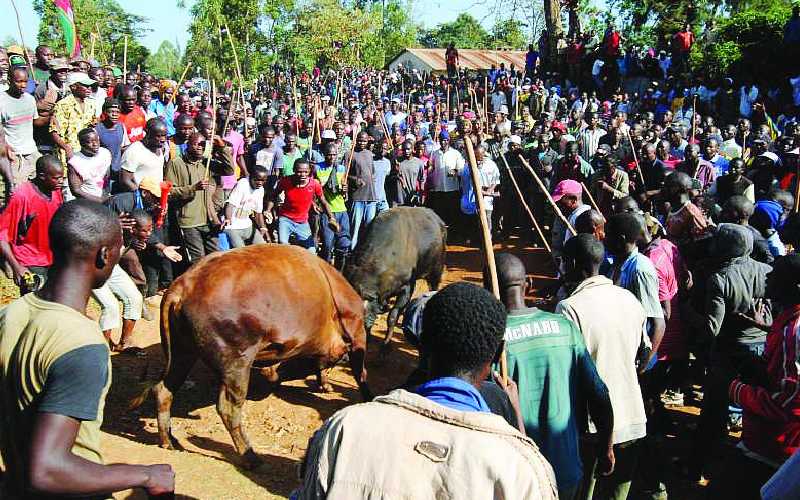×
The Standard e-Paper
Home To Bold Columnists

Bullfighting fans enjoy the sport at Shitao in Kakamega County on January 1. [Mumo Munuve, Standard]
A charged bull smashes into the opponent with shuddering force as hundreds of fans cheer them on at Shitao grounds, just a stone’s throw away from Kakamega Airstrip.